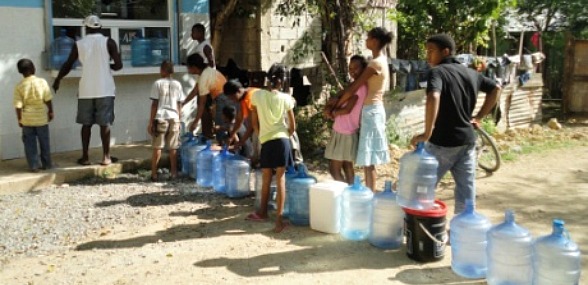
by Amelia Kent
Esperanza International is a nonprofit organization that changes lives. Through promoting development in low-income communities in Tijuana, Mexico, Esperanza empowers people to enroll in programs that will increase their quality of living and overall productivity. Programs like this are a necessity in the developing world and play an integral role in a community’s ability to be constructive, cohesive, and self sustainable.

In the spring of 2010 I was able to witness Esperanza International’s programs firsthand by serving with them as a volunteer. Our group from Seattle University was able to work side by side with three different families enrolled in the Esperanza building program. Not only were we able to learn about the Mexican culture while getting our hands dirty building houses, Esperanza also encouraged us to reflect deeper on the U.S.-Mexico border relationship; examining the differences in privilege, stereotypes, cultural norms, and systemic poverty that influence our political and personal views of the Mexican people and the country as a whole.
What makes Esperanza International so effective as a development organization is their ability to foster community development through self-help programs. Instead of entering a community and making authoritative decisions, Esperanza works directly with families for “decision-making, direction, and administration of loan funds as well as in the physical work of block-making for their home construction”. Taking the time to learn about an area and asking many individuals what they believe the local people would benefit from is an essential part of this process. This enables the client to be involved in the change process, allowing them to feel in control of their personal situation, which empowers them to make meaningful life changes toward a better future.
Esperanza also focuses on environmental sustainability. In Tijuana it is vitally important that every new structure is built with the environment in mind. “An Esperanza house is a solid, long-lasting structure that is fire resistant and stays cool in the summer and warm in the winter” according to the Esperanza website. This design will keep the family comfortable and prevent wasting any energy or income on regulating the temperature of the home. As an international organization, Esperanza also assists communities affected by toxic contamination and advocates for the implementation of international reform in environmental policy. They even support a specific “educational curricula on the multifaceted consequences of natural resource extraction and contamination”. Esperanza recognizes that knowledge is power and they work to educate families to protect themselves from potential health risks.
Finally, Esperanza International is known for their commitment to community with healthy social interaction and constituent involvement. Each group that participates in the Esperanza building program becomes a long-term contributor to the overall growth of the area. Once a participant has received assistance from Esperanza in building a home for their family, they are expected to assist others in the community. The nonprofit has worked to develop community centers and small business programs. They have also developed community outreach programs focusing on children’s and women’s health. Social workers provide family counseling services along with financial consultation. They develop a bond with the families in order to fully understand their situations and purposefully advocate for their needs. This process is essential in order to liberate an oppressed population that is experiencing extreme poverty.
Esperanza International sets a great example of social awareness and development leadership. We can only hope that fellow professionals working in international development can utilize many of the effective practices implemented by this organization. Esperanza is creating a community that fosters hope, compassion, and success, while simultaneously always reminding their participants that they are not only members of their immediate locality but also dedicated members of the worldly community.
Esperanza International References
Khuu, A. (2009, November). Esperanza international a unique non-profit. Retrieved from https://www.esperanzainternational.org
Anne Von Stubbe says
I couldn’t be better informed without Amelia’s firsthand experiences and the implementation of her knowledge and thoughtful caring and giving of herself with the choices she makes. She is a force for the good of the world and I can only hope she finds herself impacting leaders as she becomes one. Follow this girl and her progress.